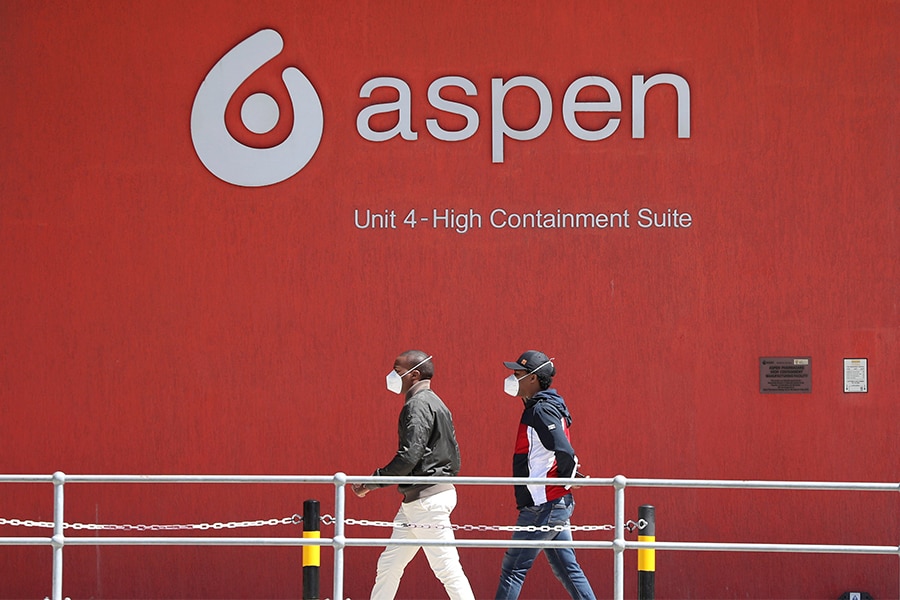
Africa's first Covid-19 vaccine factory has not received a single order
The factory, in the coastal South African city of Gqeberha, formerly known as Port Elizabeth, was celebrated as a solution to the continent's unequal access to vaccines when it announced a deal to start manufacturing COVID-19 vaccines in November. But now it faces an imminent shut down if no orders are placed
 People wearing face masks walk past a logo of South African pharmaceutical major Aspen Pharmacare in Gqeberha. Image: Siphiwe Sibeko/ Reuters
People wearing face masks walk past a logo of South African pharmaceutical major Aspen Pharmacare in Gqeberha. Image: Siphiwe Sibeko/ Reuters
JOHANNESBURG — The first factory in Africa licensed to produce COVID-19 vaccines for the African market has not received a single order and may shut down that production line within weeks if the situation doesn’t change, according to executives of the company, Aspen Pharmacare.
The factory, in the coastal South African city of Gqeberha, formerly known as Port Elizabeth, was celebrated as a solution to the continent’s unequal access to vaccines when it announced a deal to start manufacturing COVID-19 vaccines in November.
But no purchasers have appeared, as the slow distribution of vaccines in Africa has left health agencies with a backlog of supplies. Commercial production never started, in what officials say is an ominous sign for other African countries that had considered manufacturing COVID-19 vaccines.
Throughout the coronavirus pandemic, many African countries have lagged far behind much of the world in getting their people vaccinated — and some countries have had difficulty distributing what doses they did get.
Less than 20% of the total population in Africa is fully vaccinated against the coronavirus.
©2019 New York Times News Service




